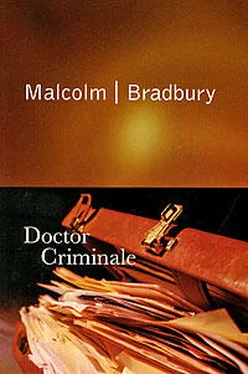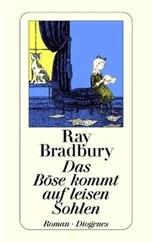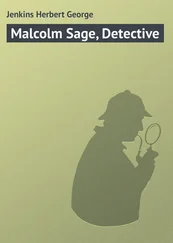Malcolm Bradbury - Doctor Criminale
Здесь есть возможность читать онлайн «Malcolm Bradbury - Doctor Criminale» весь текст электронной книги совершенно бесплатно (целиком полную версию без сокращений). В некоторых случаях можно слушать аудио, скачать через торрент в формате fb2 и присутствует краткое содержание. Город: London, Год выпуска: 2000, ISBN: 2000, Издательство: Picador, Жанр: Современная проза, на английском языке. Описание произведения, (предисловие) а так же отзывы посетителей доступны на портале библиотеки ЛибКат.
- Название:Doctor Criminale
- Автор:
- Издательство:Picador
- Жанр:
- Год:2000
- Город:London
- ISBN:978-0330390347
- Рейтинг книги:5 / 5. Голосов: 1
-
Избранное:Добавить в избранное
- Отзывы:
-
Ваша оценка:
- 100
- 1
- 2
- 3
- 4
- 5
Doctor Criminale: краткое содержание, описание и аннотация
Предлагаем к чтению аннотацию, описание, краткое содержание или предисловие (зависит от того, что написал сам автор книги «Doctor Criminale»). Если вы не нашли необходимую информацию о книге — напишите в комментариях, мы постараемся отыскать её.
Doctor Criminale — читать онлайн бесплатно полную книгу (весь текст) целиком
Ниже представлен текст книги, разбитый по страницам. Система сохранения места последней прочитанной страницы, позволяет с удобством читать онлайн бесплатно книгу «Doctor Criminale», без необходимости каждый раз заново искать на чём Вы остановились. Поставьте закладку, и сможете в любой момент перейти на страницу, на которой закончили чтение.
Интервал:
Закладка:
And so, over the next few days, when Ros wasn’t giving me the treatment, I set about Criminale. This may sound easy; it proved very difficult. There was no great problem about the works and the thought, and good old Scruton was a great help here. It was when I turned to the life that the hard graft began. In one sense, no one was more visible than Bazlo Criminale. His photograph – the mop of hair going from grey to white, the big bulky body, the sense of brooding presence – was in all the magazines. The man went everywhere. As I learned from People magazine, which had profiled him (twice), he lunched and dined with everyone who was anyone. He sat down nightly with Greek shipowners and Nobel prizewinners (many asked why he had not had one himself), with deep Buddhist thinkers and leading tennis stars, Umberto Eco and the Dalai Lama, Glenn Close and Pol Pot, Arnold Schwarzenegger and Hans-Dietrich Genscher. The first-class stewardesses on every major airline knew him on sight, and had his favourite drink (an Amaretto) and his own embroidered slippers warmed and ready for him when he boarded a flight. Great international expresses stopped suddenly at unusual stations to let him off. When he landed at JFK, it seemed, he was ushered straight through immigration and into a stretch limo to be rushed to his favourite New York resting place (the Harvard Club). When he descended on Moscow, the Zils he rode in drove the special traffic lanes kept for top party officials. At UNESCO in Paris, it’s said, they had a suite at the top of the building for him just in case he chose to stop by and lay down his head.
Certainly Criminale was power in the land; but which land? Well, no one land in particular, it seemed. He knew everybody, everybody knew him; he was Doctor Criminale. But ask where he came from, who paid him, how he lived so well, which institution he was attached to, and things grew more obscure. He was just that vague and placeless creature, the European intellectual. Take the question of his origins, for instance. Different reference books gave him different dates of birth: 1921, 1926, 1929, depending which you checked. According to one source ( The Dictionary of Modern Thought ), he came from Lithuania; look at another ( Ramparts magazine) and he came from Moldavia. As for his present citizenship, he was Hungarian, German, Austrian, Bulgarian, even American. There were other basic disagreements. For instance, good old Modern Hermeneutics had him down as a hardline Marxist, but Critical Practice described him as a dissident and revisionist who had spent time in prison (but where?). His books appeared in a confusion of places: Budapest, Moscow, Stuttgart, New York. If you found one day he had been writing an article in Novy Mir on socialist realism, you’d also find that in the very same week he’d written an article for the New York Times on nouvelle cuisine. In short, Criminale grew ever more obscure the more you thought you were getting to know him.
When I rang his London publisher, I learned no more. I asked their publicity girl (Fiona, of course) about their world-famous author, and source of many of their profits; she gave me nothing. She described Criminale as an unknown quantity, like Salinger or Pynchon, and quoted an office joke (‘What is the difference between God and Bazlo Criminale?’ ‘God is everywhere, Criminale is everywhere but here’) which did not strike me as funny. Fortunately it was Roger Scruton, helpful in this as other things, who set me on the right track. His book had only the slightest reference to Criminale’s actual life, but it had in its book-list a critical biography of our great man, written – but in German – by one Professor Otto Codicil of the University of Vienna. I pointed this out to Ros, who dialled some numbers and had the volume flown in by air express from Austria. Television, I found, works like that; it can really pull out the stops when needed, as I found many times more in the weeks and months to follow. Now, to be honest, I do not exactly know German. On the other hand I often think I understand, especially after drink or late at night. On a moderately full tank I can even read German philosophy. The small brown-paper-covered book that arrived by messenger from Vienna was plainly in a very exotic, philosophically enriched version of the language. Much of it was about Criminale’s ideas, with some of which the writer, Codicil, was clearly out of sympathy. But, using native wit, a German dictionary, and occasional assistance from Ros, who had done a course once but not remembered much, I was able to delve through it and piece together a rough and ready biography.
According to Professor Codicil, who claimed to have received some assistance from his subject (even though his study was, he said, a critical interpretation), Criminale was born neither in Lithuania nor Moldavia. In fact he was in 1927 in Veliko Turnovo geboren. Some extra research with atlas and gazetteer established what and where Veliko Turnovo was – the ancient capital of Bulgaria, famous for its old university and monasteries, its storks and its frescos, its castle and its ancient Arabesque merchants’ houses. It lay not too far from the River Danube on the old trade routes that had run from East to West and, of course, vice versa, and was an important place of learning. The birthdate given, 1927, was also interesting, because that made Criminale of university age just around the rime the Second World War finished. At that time Bulgaria was, as the saying had it, ‘liberated to the Russians’ by Georgy Dimitrov, whose mausoleum was a place of pilgrimage in Sofia’s main square over the dark Cold War years. (Now, I gather, since the winds of change blew, his resting place has been gutted and is up for commercial development, probably by McDonald’s Hamburgers.) This probably meant that Bulgaria, land of attar of roses, fine frescos and also poisoned umbrellas, was not, at the time, the ideal place for a free and inquiring spirit. At any rate, it seemed that, around the time that Stalin i walked in, Criminale smartly stepped out – though it was not at all clear how far.
Certainly, according to Codicil, over the next years Criminale studiert, a great deal, and none of it at home. He had in Berlin ( Philosophie ) studiert, though in which Berlin (there were then two, of course) he did not say. He had in Vienna Pädogogie studiert, though for how long this local recorder did not choose to make clear. He had also in Moscow ( Politische Theorie ) studiert, which could have explained his Marxism. However he had also in Harvard ( Ästhetik ) studiert, which could have explained his dissent from it. And if, to my naive eyes, Criminale’s life seemed baffling, so did what Lavinia called his loves. Criminale appeared to have married at least three times (in Prague, Budapest and Moscow), though he seemed to have divorced only once. This was a little bit obscure to me, even if it made total sense to him. As for career, there was a similar pattern of wandering, border-crossing, variety. Criminale had been, at various times (not put in order), a dozent at the Eötvös Lorand University in Budapest, Hungary; a dramaturge at the People’s Theatre in Wroclaw, Poland; the Kunstkritiker of a newspaper in Leipzig. Around this time he had also managed to fit in a bitter quarrel with Heidegger, an aggressive assault on Adorno, and a contentious revision of Marx. To all these matters Professor Codicil devoted many challenging pages, but they were hard to read, difficult to use, and not, I thought, likely to stir the tough soul of Lavinia, assuming she had one, very much at all.
Things, I thought, might look a little clearer when I got to the years of Criminale’s rising fame. Unfortunately, you couldn’t say they did. Criminale was now elected to various academies; he ran a great many congresses, in various fields ranging from world peace to experimental film; he joined the committee of various international writers’ associations linked with ‘progressive’ views. He became a regular traveller, came to know Sartre and Simone de Beauvoir, met Castro and Madame Mao. Various international prizes came his way – for philosophy, economics, fiction. From time to time, in several different countries, he was offered political posts and even, once, ministerial office; he always refused. Apparently he preferred to concentrate on his articles and books, some of which were refused publication here, but managed to appear there. Codicil’s book, which predated by four years the coming down of the Berlin Wall, still talked about some of his books being held in reserve for ‘better times’. Attacked for his progressive attitudes in the West, he had also fallen foul of various bitter disputes in the Marxist citadel; yet all the while his reputation grew. His lectures drew large crowds, and foreign universities began to summon him. He spoke at Bologna, lectured at Yale, attracted large audiences in Brazil, received an honorary degree in Tokyo. He commented freely on political regimes. He also advised Walter Ulbricht on human rights and Nicolae Ceauseşcu on architecture – two items in his dossier that must have embarrassed him considerably.
Читать дальшеИнтервал:
Закладка:
Похожие книги на «Doctor Criminale»
Представляем Вашему вниманию похожие книги на «Doctor Criminale» списком для выбора. Мы отобрали схожую по названию и смыслу литературу в надежде предоставить читателям больше вариантов отыскать новые, интересные, ещё непрочитанные произведения.
Обсуждение, отзывы о книге «Doctor Criminale» и просто собственные мнения читателей. Оставьте ваши комментарии, напишите, что Вы думаете о произведении, его смысле или главных героях. Укажите что конкретно понравилось, а что нет, и почему Вы так считаете.











